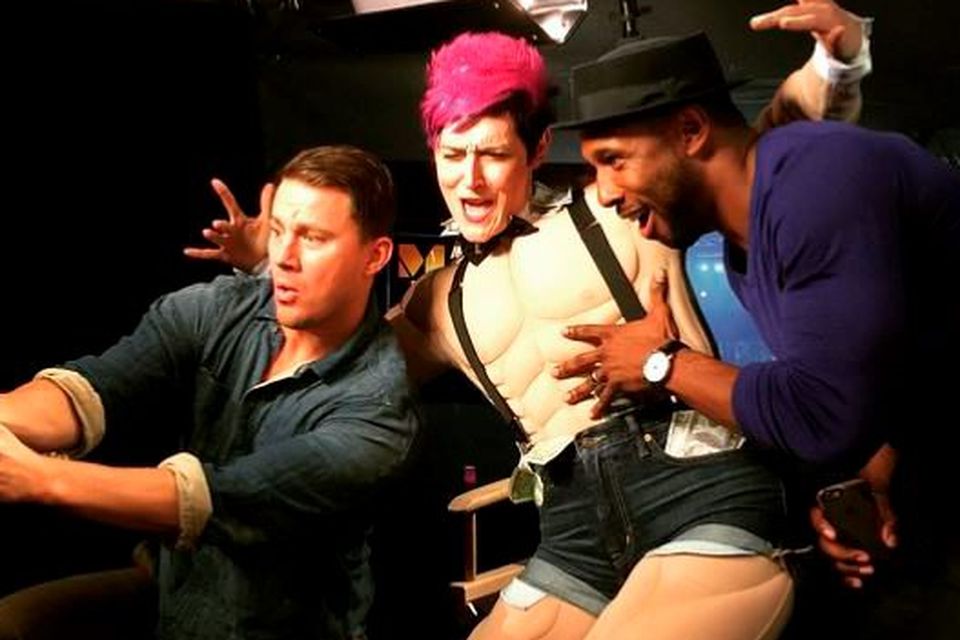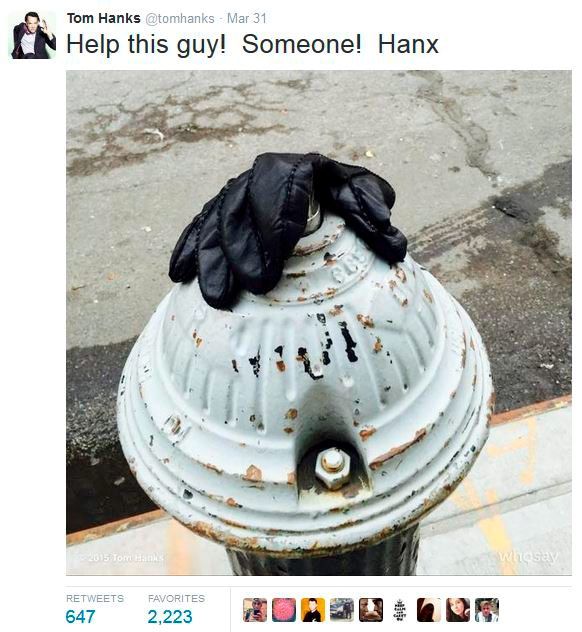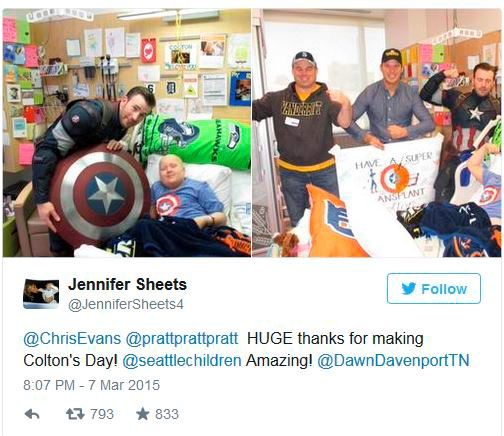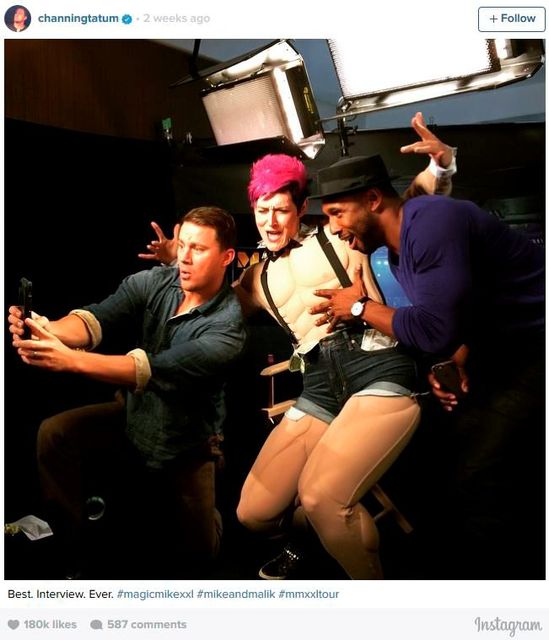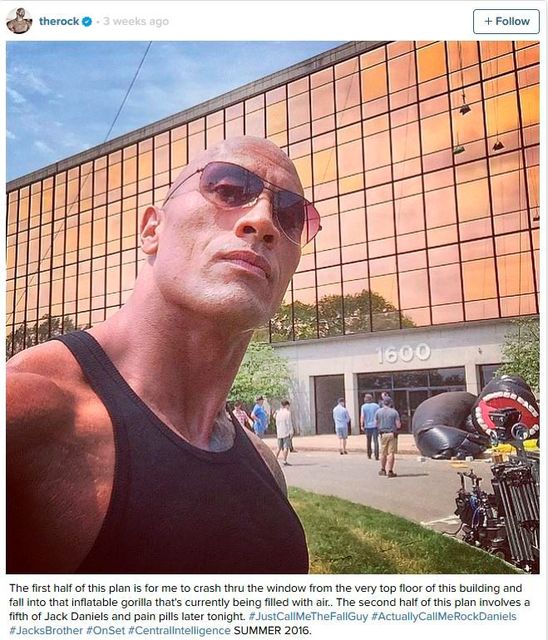From Chris Pratt to Channing Tatum – how the nice guy conquered Hollywood
Pic: Channing Tatum/Instagram
The bad boys and jerks of yore are being replaced by actors who are decent, funny and personable. What went right?
Blame Tom Hanks. For years, being a complete bastard was part and parcel of being an A-list actor. You played a character on screen, earned your salary, then went off and caused merry hell in your spare time. As long as your films were hits, people sucked it up. And then the drip-drip-drip of Hanks’ affable persona went through the Hollywood landscape until finally, the internet caved to him altogether.
By the time Hollywood noticed that social media was a fairly major part of marketing for their films, and clients, “Hanx” was already signing off charming, personal tweets, and popping up in other people’s feeds as an example of someone just walking around doing really nice things: befriending taxi drivers, refunding fans who didn’t like a film, photographing lost gloves.
ou really can’t argue with someone who collects vintage typewriters, and certainly not when they go the extra mile and launch an iPhone app so that people can experience the “bang bang clack-clack-clack puckapuckapuckapucka” sounds of typing, as Hanks put it.
As social media has expanded, our worlds have both enlarged, and become more intimate. A star who behaves like an asshole can no longer hide behind a pretty face, not when autographs have been replaced by selfies, and requests to follow, tweet or DM. Interviews are no longer all long-lead magazine spreads – now it’s podcasts, YouTube, Reddit AMAs. This isn’t Nice Guy equals doormat: it’s Nice Guy equals someone who, were their name to come up in conversation at the pub, would elicit approving nods and “yeah, sound bloke.”
Hugh Jackman, Chris Evans, Matt Damon and The Rock typify the Nice Guy. You’ll never find people speculating that one of them was behind the latest terrible thing covered by Popbitch in a blind item. Nice Guys have normal lives away from their success, with stable relationships and families. They tend to live pretty sensibly.
Another Chris, Pratt this time, is one of the vanguards of the movement – entry requirements: basically, be approachable, have a personality, embrace fun – and describes it as a sea change on a par with the talkies. His career has gone from cult TV on Parks and Recreation to Hollywood leading man in Guardians of the Galaxy and Jurassic World. It helps that he has a reputation as a decent chap, a nice line in personable social media posts, and clearly adores and respects his wife, Anna Faris.
“In the silent film era all you had to do was look right on camera, and then all of a sudden the talkies came and people had to match your voice with your face and some actors didn’t make it through that,” Pratt tells the Nerdist podcast. “But if you sounded right and you looked right, you could be a huge star. You could be a complete asshole, you could be a real piece of shit and abuse drugs, beat women, whatever. Your private life wasn’t part of it, it was just how you looked and how you sounded and the character that you played. That’s what people knew and they judged who you were based on the character.
“In this day and age there’s a new third thing come to the forefront which is, ‘who are you? What is your personality like? Are you a decent person? How are you in an interview, do you squirm? How much will you give up of yourself?’ That’s the new transition that people are having to make, and you see actors out there who have bad reputations, who are assholes, who treat the people around them poorly, who don’t get along with their fellow castmates and shit on the crew and they just don’t get work anymore.”
ake a look at big stars who haven’t worked in a while, and you’ll see what he means. Not everyone is able or indeed willing to share their lives on social media, partly because of the control, but also because you can’t hide a lack of personality forever. James Caan, Frank Sinatra and Marlon Brando’s behaviour would kill their career these days. And can you imagine Leonardo di Caprio dressing up in a superhero suit to entertain hospitalised children as Pratt and Evans did in March?
As the Slate writer Dana Stevens puts it in her recent profile of Magic Mike XXL star and renowned Nice Guy Channing Tatum: "To maintain that sweet a persona that consistently while being a jerk in real life would require more dramatic acumen than Tatum has shown in many of his onscreen roles to date."
In one of the most enjoyable interviews of the last 10 years, a pre-real fame Tatum took the GQ journalist Jessica Pressler on a jolly road trip. She describes him, magnificently, thus: “in real life he's like a big, good-looking Tickle Me Elmo".
Since the interview Tatum’s career, like Pratt’s is heading to the top rungs of Hollywood, and as a comedian, rather than a tortured souls. Fans and audiences have had enough of tortured souls: now they want good-natured, personable types with a sense of humour, and the grace to accept their good fortune.
Crucially, the actor needs to find the right sort of film, which can be easier said than done. I didn’t think much of Tatum in A Guide To Recognising Your Saints, and in his own words, GI Joe: Rise of the Cobra was bad, but he’s now settled into a groove that brings out the best in him.
Magic Mike XXL is the quintessential nice guy movie, a joyous crossover between The Hangover and Pitch Perfect 2 – rather oddly, given the marketing. “Ah, the porn font,” Tatum, said introducing the film at a recent London screening. His character Mike and his former gang of stripper buddies, make a film about taking your clothes off into a must-watch tribute to friendship, fun and humour, all while treating people decently. It’s one of the most realistic portrayals of men – and women, even the supporting characters feel fully rounded – that I’ve seen in a long while. You recognise the people on screen, and a lot of that is due to the Nice Guy aura given off by Tatum, and his co-stars.
The characters in Magic Mike XXL are confident enough not to have to be chippy, or brash, or weird around women or gay people. They embrace the moment, and they do it with courtesy and humour. It’s a joy to see, certainly compared to Jurassic World, which even Pratt’s megawatt decency couldn’t rescue from underwritten characters.
Just look at the man, the legend, known variously as The Rock and Dwayne Johnson. He could have been lost to B-movie video game adaptations, but rather than let the terrible CGI of, let’s say, The Scorpion King, wipe him out, he rose above by being enthusiastic, demonstrably hardworking, inspirational and funny. His Instagram and Twitter feeds are little injections of joy into your day.
And this is the key part: his fans feel genuinely excited when he gets a new show (Ballers, just launched to strong reviews in the US) or a film does well (San Andreas surpassing Harry Potter as the biggest opening Warner Bros film of all time). This isn’t just fandom, this is being invested. It’s more satisfying to be on the team of someone who exudes positivity, and bad jokes. And crucially, it makes the film marketing easier too.
This has all been longer established in women stars, who have often had to conform to the more boring sort of nice. At least now there’s room for wisecrackes: Anna Kendrick, Jennifer Lawrence, Anna Faris, Amy Poehler, Tina Fey, Elizabeth Banks, and the arch Queen of Nice, Taylor Swift. Christmas care packages? Videos with her cats? Getting all her buddies to join in her latest video? Oh go on then.
After years about reading about high maintenance demands and diva strops, it’s a blessed relief to have some decent people around. Long may it continue – it’s time to abandon the bad boys to the bedroom walls of yore.
Join the Irish Independent WhatsApp channel
Stay up to date with all the latest news
